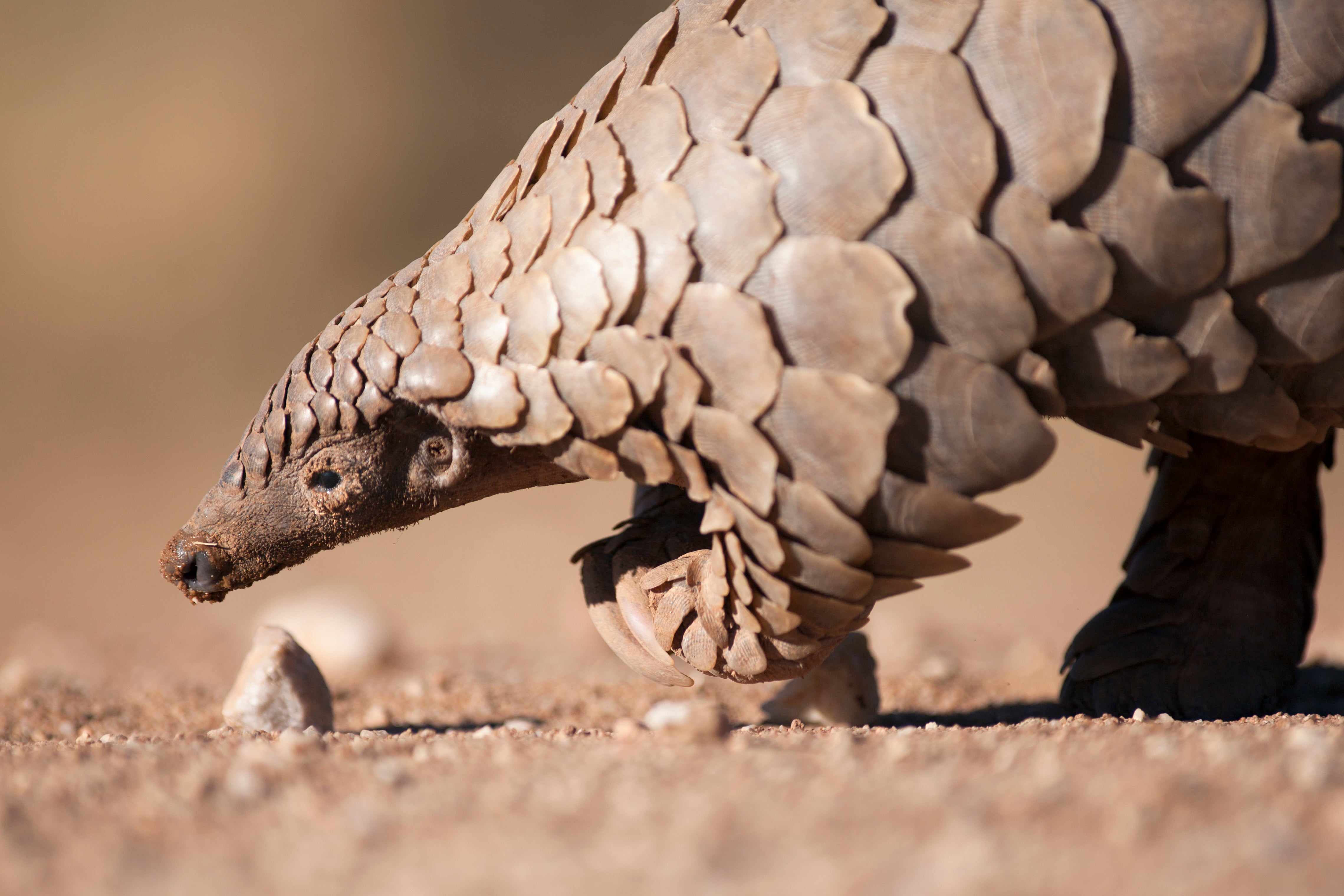Pangolin kidnapped and held to ransom in Congo amid fears of ‘new trend’ in wildlife crime
‘If we pay them, then we are doomed,’ say conservationists

An endangered pangolin has been taken hostage by a group of rebels in the the Democratic Republic of Congo who sent a ransom request to conservationists for the animal’s release.
It sparks fears that the kidnap could lead to a trend in using wildlife as bargaining power, the activists negotiating with the kidnappers are attempting to rescue the pangolin without payment.
“This is something new and alarming,” Adams Cassinga, founder of Conserv Congo, said after “proof of life” photographs of the prized animal were sent to community conservationists.
“If we pay them, then we are doomed, the whole park and all the apes would be taken hostage.
“They have seen how much money is spent on conservation issues and that rare animals are prized by the international community, and they would say even more so than the poor communities who live in the same area,” he added, after the pangolin was captured on the border of the eastern rainforests of the DRC.
According reports, the mammal is being held Virunga National Park, where over 120 gangs are engaged in a long-fought dispute over land and mineral resources.
It comes as the number of people being taken hostage in the area has surged over the past year in a bid to fund the conflict. Aid workers are a common target.
Cassinga added that, in the wake of last year’s killing of Italy’s ambassador to the country, the armed groups have been seeking out new means of raising funds.
Conserv Congo was contacted over the weekend after the pictures were sent to local conservationists in the town of Mweso.
A call placed later to a group in North Kivu province was answered with: “Pay us and we hand it over for release, if not we will do what we want,” Cassinga added.
The Nduma Defence of Congo, the gang thought to be responsible for snatching the nocturnal mammal, are yet to determine a price for the pangolin. “They are testing the market,” Cassinga added.
Dubbed the “most trafficked mammal in the world” by the WWF, more than one million pangolins have been lifted from the wild over the last decade by poachers seeking their meat and scales (for use in traditional medicines), and tens of thousands are still trafficked every year.
All eight species of pangolin are catalogued on the IUCN Red List of Threatened Species. The Chinese, Sunda and Philippine pangolins have also been labelled ‘critically endangered’, nearing becoming ‘extinct in the wild’.
Join our commenting forum
Join thought-provoking conversations, follow other Independent readers and see their replies
Comments
Bookmark popover
Removed from bookmarks